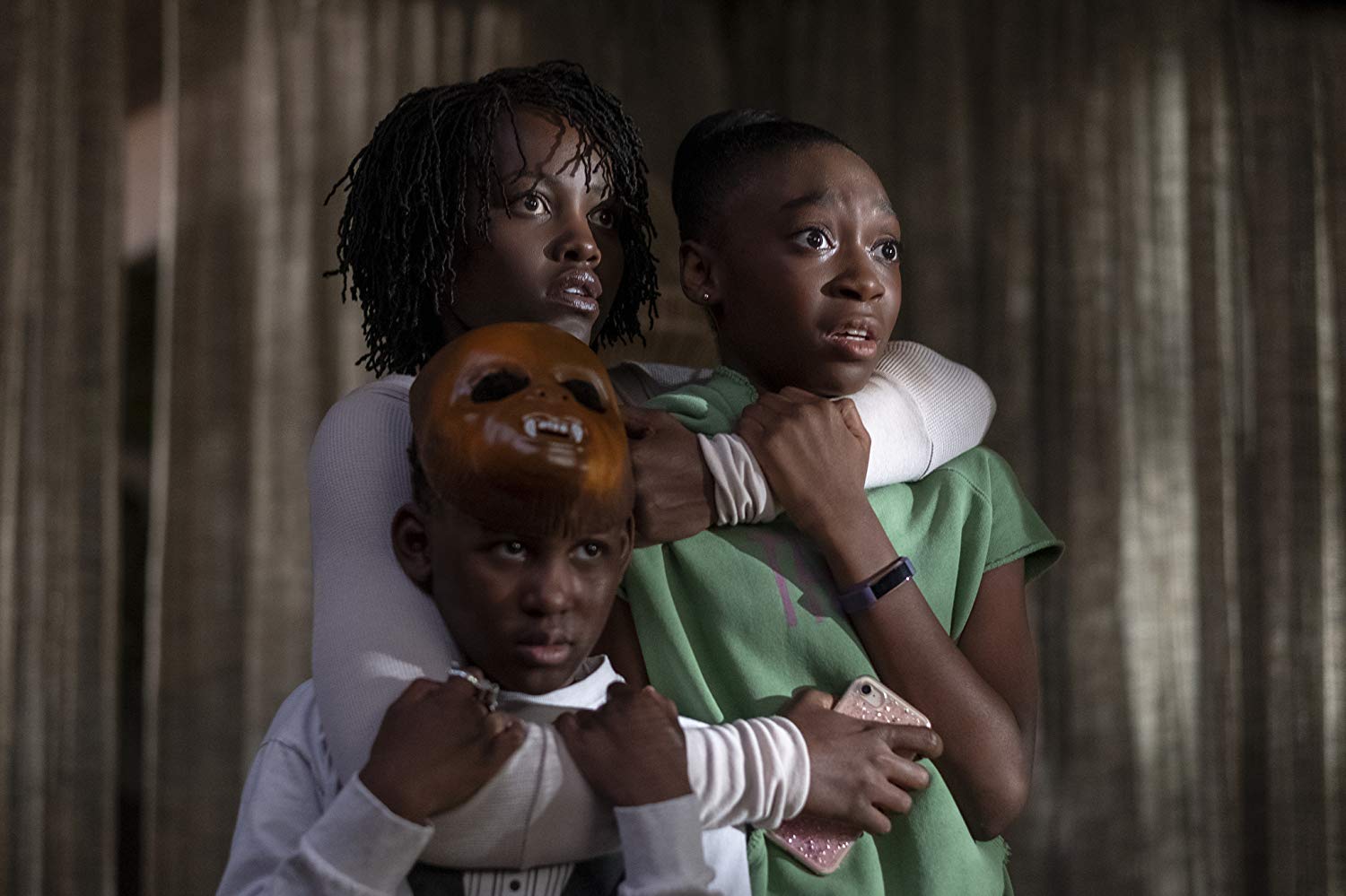[dropcap size=big]O[/dropcap]ver the weekend the Jordan Peele film Us silenced any last Hollywood naysayer that might remain against the power of black genre films to drive audiences to movie theaters.
In its first weekend, Us has broken records for one of the biggest weekend openings for an original movie, bringing in $71.1 million — more than tripling its $20 million budget. The film joins the few original movies with breakout weekend performances of the decade since last year’s A Quiet Place. It earned the third highest grossing for a horror film opening of all time. And it has the biggest R-rated domestic opening weekend since Ted in 2012.
The story follows a family who vacations at a beach house in Santa Cruz, where they start to see dopplegangers of themselves. Lupita Nyong'o plays two characters who are complete opposites. Perhaps the most impressive feat is Nyong'o’s manipulation of her voice to create an absolutely terrifying villain. In an interview, Nyong'o says the method is based on a disorder called spasmodic dysphonia. The condition leads to spasms in speech that create a dry baritone voice.
Not to mention that she plays both the protagonist and antagonist.
In his last film, Get Out, Peele crafts a haunting world of racial tensions in an interracial relationship. In Us Peele follows the life of a comfortable black family whose biggest concerns, before the events of the movie, are the banalities of the middle class. Both films find ways to conjure fear in personal relationships and family life.
[dropcap size=big]P[/dropcap]eele’s films are tethered through their focus on objects. For Us the focus on objects manifests in two ways, the middle class’ relationship to status and materials, and villains and weapons. In Get Out the tea cup is transformed from an ordinary kitchen object to a powerful device of hypnotism. In Us, the object of terror is a large pair of gold scissors that are the tool of the antagonists.

Peele’s focus on objects, at a surface level, seems like a page from the horror films of the past. Handheld weapons create a deeper fear than a gun, put simply guns aren’t scary (at least on-screen). Peele uses everyday objects to create horror and reminds us that there is a darkness to the innocuous.
That same disregard for the innocuous is the central theme to the movie. The film works to challenge the seemingly harmless nature of domesticity. The prologue title card foreshadows its curiosity with the underworld, the forgotten subway systems, tunnels – the underbelly of the world we live in.
Peele’s two films differ on another major point. Get Out focused on current racial tensions in the United States, while Us does not engage with those tensions as directly. Instead it seeks to center the black experience in the horror genre at large.
Peele is addressing the trope of black characters being sidelined in the genre, and gives them agency. The most direct way the film addresses those issues is by centering the story around a black family, refuting the trope of black people “dying first” in horror films.
What Us proves, more than anything is the prevailing hunger for original films centered on people of color. It shows that championing representation can translate to box office success. But more important than all the politics, it is an impressive creative horror film that appears at a time when most of the films in the genre are remakes and franchises. It is bold in concept and sticks the landing.
One thing is for certain, Peele has emerged as one of the distinct voices in horror. Let’s hope that there is no confusion about Us being a horror film. Ask anyone who’s seen it: it’s scary as shit.
RELATED: Review: For Mexico and Los Angeles, Roma Immortalizes the Strength of Domestic Workers







